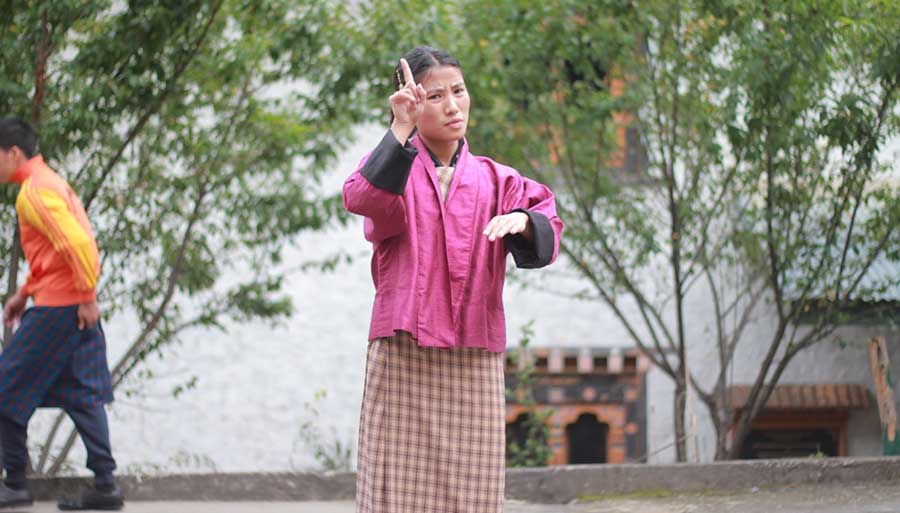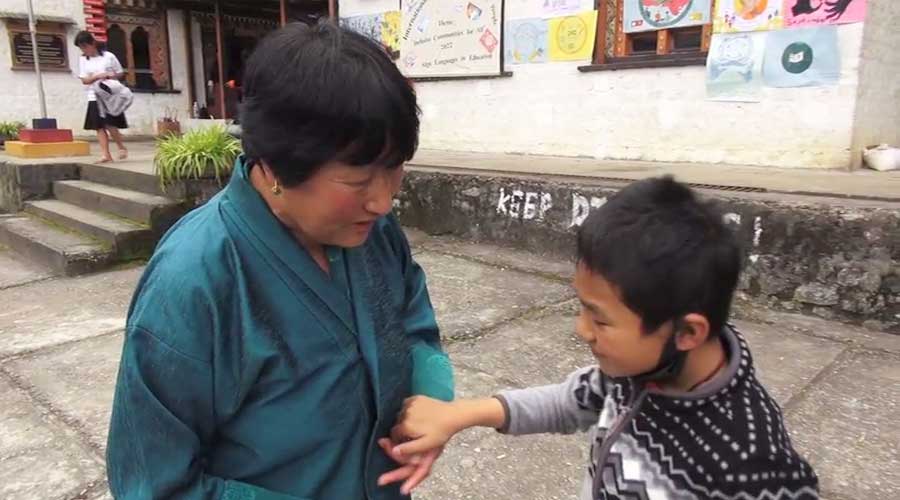
Observing the International Week for the Deaf, parents and caregivers of students studying at the Wangsel Institute for the Deaf in Paro pleaded with the community to learn sign language. They said for the deaf community, sign language is not simply a means of communication but it is a part of belonging to a community.
Parents and caregivers of more than a hundred deaf students of the institute took part in the weeklong observation last week.
Amongst them was 60-year-old Tshering from Chang Nangka in Paro. She has rented a house near the institute to take care of her 11-year-old grandson who is a student of the institute.

“When deaf children try to communicate with sign language, we laugh and do not respond properly. But we must not do that. We must learn their language. If we do so, then this will solve most of their problems. They can also understand what we are trying to say,” said Tshering.
“When we were small, there were people who cannot talk or hear, they are mostly sent as herders. Or are mostly ignored by the community. But as I came here and saw how the children are being engaged, I was taken aback. They are doing much better than most of us. I am proud of the teachers and the students here,” said Sangay Tshering, a resident.
“Since they cannot hear, the hands become their ears and mouth. But the sign languages we use at home are different from the ones the children learn in school. So, we all must take part in learning sign languages,” said Dechen Wangmo, another parent.
Sign language allows children who are deaf to enjoy learning and socialising.
“People around can also learn sign language whereby including deaf people and make us as one community. For example, if we are to communicate in Dzongkha to someone who doesn’t speak Dzongkha there are chances of a communication gap. So, these things happen with the students who are deaf. Their language is sign language,” said Sonam Choden, a teacher at Wangsel Institute for the Deaf.
“We were excited to perform in front of our parents and other spectators. We also had a chance to socialise with them and share our experiences. They understood how important our language is for inclusivity. I am happy,” said Tenzin Wangchuk, a student of the institute.
And to equip parents and caregivers with the skills, the institute started a special class for parents to learn sign language beginning this year. And according to the institute, on average fifteen parents and caregivers come to attend the class every Friday.
Namgay Wangchuk, Paro
Edited by Sonam Pem




